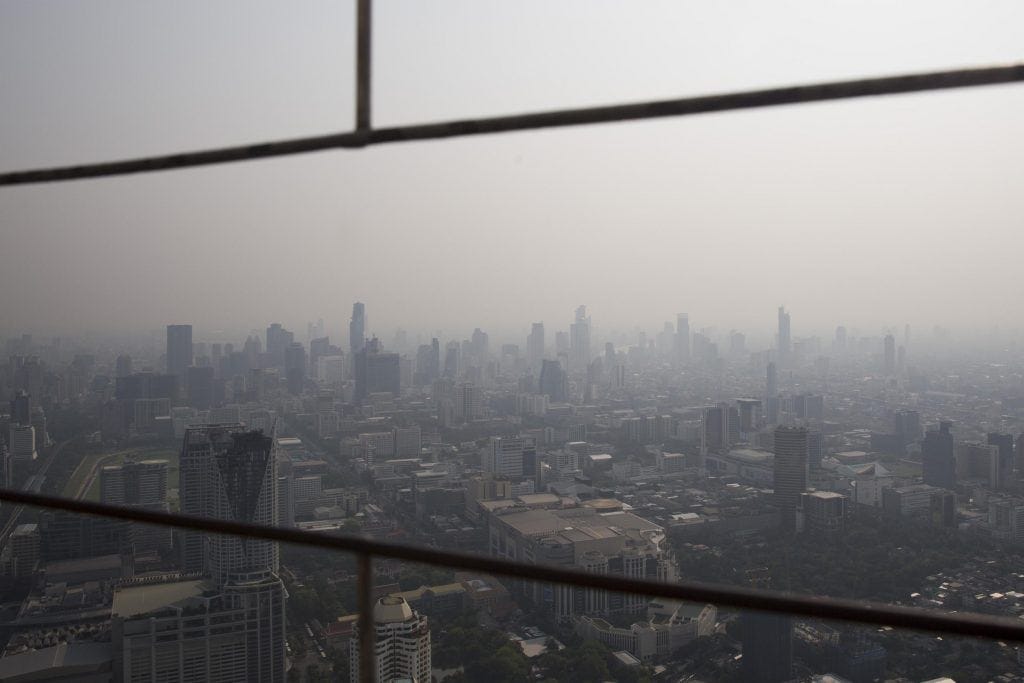Climate change : several strategies in South East Asia
Southeast Asian countries have a role to play in the fight against climate change, by taking care to balance economic progress with climate-friendly development. But each country has its own strategy.
Based at HKU, the Asia Global Institute proposes on its website a very interesting article concerning the topic of the strategy to fight global warming in South East Asia (ASEAN countries).
Jens Marquardt, Laurence L Delina and Mattijs Smits, editors of the recent book Governing Climate Change in Southeast Asia, outline how Southeast Asian countries have responded to the climate challenge and summarize the lessons learned from climate governance in ASEAN.
The countries of Southeast Asia are experiencing a period of accelerated economic development and industrialization. Faced with the challenges of global warming, researchers have noted that each country tries to find a solution that takes into account: its political system, the influence of its regions or territories, the influence of foreign economic actors.
Consequence, Jens Marquardt, Laurence L Delina and Mattijs Smits could observe several types of opposite reactions :
Authoritarian vs democratic climate governance
State-led vs non-state climate action
Government regulations vs market forces
Outlook and cautionary trends
What emerges from the researchers' analysis is the fundamental role of environmental and nature education - which is often abused for political or economic reasons in these countries - in transforming the way newcomers look at the climate issue and its protection in the future.
The fact that the ASEAN countries' responses to the climate issue are different allows for both reflection and experimentation of various solutions. It also demonstrates that the global process of greenhouse gas reductions may need to be adapted to the constraints of the territories and that the fantasy of a uniform solution for all countries does not exist in reality.
Drawing on case studies from all Southeast Asian countries, namely Brunei Darussalam, Cambodia, Indonesia, Laos, Malaysia, Myanmar, the Philippines, Singapore, Thailand, Timor-Leste, and Viet Nam, Governing Climate Change in Southeast Asia will be of great interest to students, scholars, and practitioners dealing with climate change and environmental governance.
To go further on this topic :
Carroll, Toby; Hameiri, Shahar; and Jones, Lee (eds). (2020) The Political Economy of Southeast Asia: Politics and Uneven Development under Hyperglobalisation, Palgrave Macmillan, Cham, London, UK.
Chou, Kuei-Tien; Hasegawa, Koichi; Ku, Dowan; and Kao, Shu-Fen (eds). (July 20, 2020) Climate Change Governance in Asia, Routledge, Abingdon, UK.
Hirsch, Philip (ed). (September 15, 2016) Routledge Handbook of the Environment in Southeast Asia, Routledge, Abingdon, UK.
Marquardt, Jens; Delina, Laurence L; and Smits, Mattijs (eds. (December 8, 2021) Governing Climate Change in Southeast Asia: Critical Prospects, Routledge, Abingdon, UK.
Sims, Kearrin; Banks, Nicola; Engel, Susan; Hodge, Paul; Makuwira, Jonathan; Nakamura, Naohiro; Rigg, Jonathan; Salamanca, Albert; and Yeophantong, Pichamon (eds). (February 28, 2022) The Routledge Handbook of Global Development, Routledge, Abingdon, UK.




